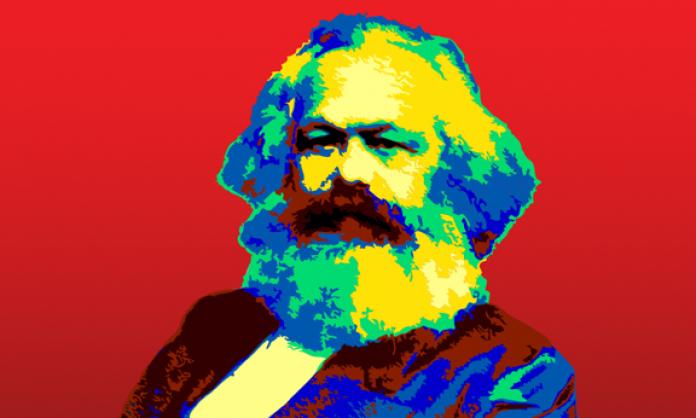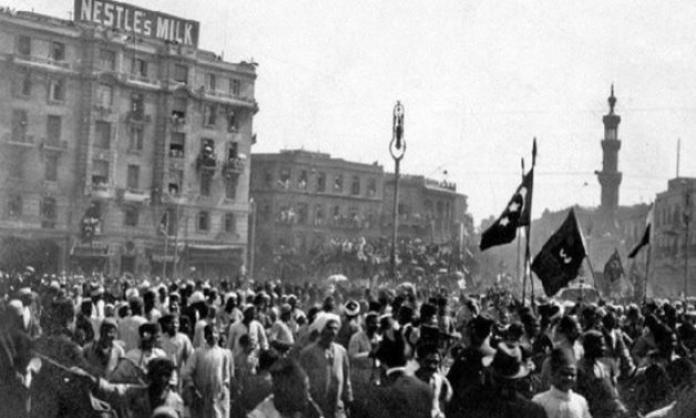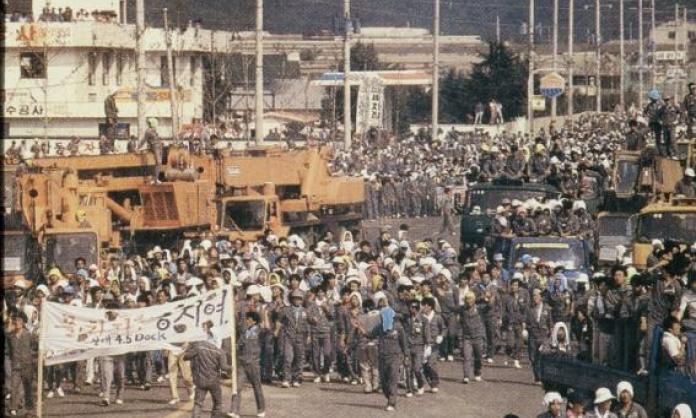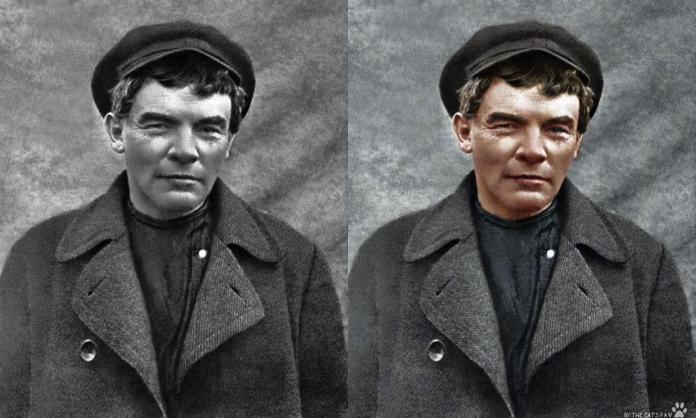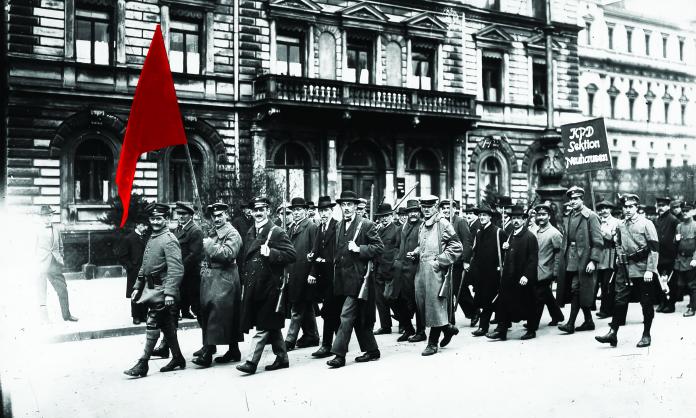Karl Marx hated servility. Devoting his life to ending exploitation and oppression, the revolutionary journalist, agitator and theorist could think of nothing more miserable than submission.
Marx was editor in chief of the Neue Rheinische Zeitung (New Rhineland Times) during the German Revolution of 1848-49. The newspaper remains an ideal of revolutionary journalism, known for its acute analysis, breadth and audacity. As a leader of the International Workingmen’s Association from 1864 to 1874, he tried to build an organisation to lead the struggle for socialism against the ruling economic elite and the states protecting them. And in Capital, his monumental thesis on political economy, Marx produced a groundbreaking explanation and critique of capitalist society, which remains mandatory reading to this day.
Marx changed the way we think about the world. But his originality was possible only because the world itself was changing around him. Parts of Western Europe and North America had experienced revolutions that replaced absolutist, colonial and feudal forms of rule with modern forms of political representation. These revolutions cemented the liberal political language of freedom, equality and property within newly emerging capitalist societies.
But the Dutch revolt, the English and French revolutions and the North American colonists’ rebellion produced contradictory effects. While they often used universalist phrases – “we, the people”, “the rights of man” – they didn’t do away with oppression: women remained second class citizens, non-property-owners were denied democratic rights, and blacks were considered little more than animals. The Dutch, who produced one of the Enlightenment’s greatest philosophers, Baruch Spinoza, brutalised and kidnapped the Javanese in the name of commerce. The English dominated the slave trade after the revolution of 1688 that overthrew King James II. And the newly formed United States built its economy through slave labour.
Within the new societies, wage labour became a prominent part of urban life. This modern form of exploitation required a vast mass of people with nothing to sell but their own ability to labour – usually ex-peasants driven from their own patches of land. With wage labour came unemployment, draconian penalties for vagrancy, the dreaded work houses (which welcomed the destitute only to terrorise them into work and slavery) and their liberal ethic eulogising toil.
On top of this was the criminalisation of the labouring classes, hundreds of thousands sent to America or Australia as convicts or indentured servants or hanged for minor “crimes”. Marx wrote in Capital of the common “kidnappings perpetrated in the early days of the factory system, when children were stolen from the work houses and orphanages … incorporated [into] a mass of unresisting human material”.
Marx was raised in Germany, which had not experienced a successful bourgeois revolution like England or France. Germany was not the unified state we know today, but a patchwork of confederated states. Prussia, its then dominant power, was still a Christian monarchy. But Marx came from the Rhineland, the most economically advanced area, and was deeply affected by the ideals of the French Revolution, which predisposed him to progressive authors. Initially, he rebelled against the religious character of the state, the government’s censorship of the press and the distress of poverty-stricken wine growers. But he came to realise, when Prussia suppressed the Neue Rheinische Zeitung, that the government couldn’t be reformed.
*****
What Germany lacked in political and economic development, it made up for in the production of theory. Immanuel Kant and Georg Hegel reflected on the characteristics of modern bourgeois life and its economic and political paradoxes. To this day, their works are considered touchstones of philosophy. In his day, Marx read them and tried to go beyond them.
When facing a political problem, he studied everything he could get his hands on to bring to it a coherent answer: Hegel’s Philosophy of Right and Phenomenology of Spirit, Rousseau’s The Social Contract, Montesquieu’s Spirit of the Laws, Machiavelli’s Discourses, the French political economists and the English socialist critics of the economist Ricardo such as John Francis Bray. This gave him the intellectual foundation to overcome the thinking of his time.
In his reading of history, Marx focused on the French Revolution, but also read about contemporary US society and its inequalities, the Venetian republic and its downfall, and histories of Germany and England. He tried to understand the connection between property and social class, and the relationship of the state to society. Through his studies, Marx came to understand how the bourgeois revolutions had failed to create a world of genuine equality and freedom.
The fruits of Marx’s labour are present in his Kreuznach (a district in the Rhineland), Paris, Brussels and Manchester notebooks written between 1843 and 1845. In Manchester, he encountered the most industrialised city in the world, and Chartists, members of one of the first mass working class movements, who in 1842 led a general strike for political rights.
Marx wanted to understand the historical and political condition of the growing mass of wage labourers. He read Eugene Buret’s On the Poverty of the Labouring Classes in England and France, a popular work at the time, to come to grips with the labour theory of value and the early socialist critiques of the industrial system. One Marx biographer, Sven-Eric Liedman, wrote that central for Marx was “his requirement for scholarly scientific exactitude and comprehensive reading … He read copiously and took careful, detailed notes on what he read … and was scornful and ruthless towards those who wanted to skate by more easily”.
Marx’s reading of John Francis Bray’s Labour’s Wrongs and Labour’s Remedy was important in developing his attitude towards class struggle – the self-emancipation of the working class – and recognising the limitations of contemporary socialist thought. Bray, an early critic of the industrial system, argued that “life is dependent upon food, and that food is dependent upon labour”, and that the “various institutions by which man is surrounded, trace out the orbit in which his thoughts, and feelings, and actions are to move”. In both statements we can glean themes later fully developed by Marx – a theory of economic value and of ideology’s material base and social role.
Marx filled his notebooks with passages from Bray, whose fundamental idea was that equal rights could never meaningfully exist alongside inequality of wealth (divided between a labouring class and another class controlling labour). Marx carefully translated his argument:
“The wrongs inflicted upon the working classes by each [monarchies and republics] are the same. By thus going to the origin of the thing, we shall find that every form of government, and every social and governmental wrong, owes its rise to the existing social system – to the institutions of property as it at present exists – and that, therefore, if we would end our wrongs and our miseries at once and for ever, THE PRESENT ARRANGEMENTS OF SOCIETY MUST BE TOTALLY SUBVERTED, and supplanted with the principles of justice and the rationality of man [sic].”
The most politically advanced working classes of Marx’s time were demanding equal rights, and Marx was surrounded by people with something to say about the unjust state of the world and who wanted something better: French radicals, German émigré socialists, Italian national-democrats, English Chartists and Russian revolutionary exiles. Marx believed that anyone making an argument about a new world needed to use clear expression.
He criticised other radical currents of his time – the German “True Socialists” – who indulged in a discourse of love and feeling. Moses Hess, who professed the ideal of communism for much of his life and had a great influence on the young Frederick Engels, and even blocked with Marx against the anarchists in the First International, developed a theory that love unified humanity. But his lovely idea could not bridge the real divide between the classes, based on systematic theft and violence, and so failed to realise his own communist ideal. His version of “True Socialism” was the object of harsh critique in the Communist Manifesto.
Marx also criticised those who restricted the horizon of the workers’ movement to equal rights and equality before the law (as important as these demands were). No matter how radical the rhetoric of political equality sounded, equal rights are compatible with exploitation.
Capitalism is based upon the production of commodities, which are exchanged for their equivalents, their economic equals. This includes the ability of workers to labour, which under capitalism is a commodity like any other. The entire secret to capitalism, Marx explained, is that exploitation occurs under conditions of equality: workers in the labour market exchange their capacity to work for a wage from a boss.
Legally, it is a “free association” between worker and boss. But what the workers receive in a wage is less than what they produce in value – the difference is pocketed by the boss as profit. That is the entire basis for the perpetuation of class divisions. “Equality” limits the possibilities for human freedom to the confines of capitalist exchange.
Many arguments of Marx’s contemporaries were ideological. They thought grand principles were the motor forces of history. But the history of ideas – or idealist history – cannot show how the actions of different classes and parties, and their political phrases, originate in the real world struggle between classes: the struggle over who gets what out of any society. Theory, the Communist Manifesto declared, is only the general expression of the “actual relations springing from an existing class struggle, from a historical movement going on under our very eyes”.
*****
Capital was a book for socialists and activists in the workers’ movement. Marx wanted to convince other activists that capitalism was fatally flawed, unreformable, and that only the working class had the power to overthrow it. But workers’ power derived from their economic position, not their thoughts about themselves, and could be won not simply as an act of will, but under circumstances of capitalist crisis.
His literary production was dedicated to a sustained and decades-long polemic with rival schools of thought in the socialist movement. Marx was brutally critical when it came to the naïveté of early and contemporary socialist economic and political theory. William Clare Roberts, author of Marx’s Inferno, put it in these terms:
“[Marx’s] fundamental criticism was that other socialists had terrifically oversimplified the operations and the harms of modern capitalism by individualising and moralising both. As a consequence, that had also massively oversimplified the task facing the workers’ movement, reducing it now to a problem of moral or scientific education, now to one of will power.”
Marx fought death and disease to write Capital because he wanted to provide the workers’ movement with a theory capable of countering the best ideas of the ruling class. The project of writing the book was inseparable from building a working class movement politically independent from bourgeois parties and their ideologues.
The capitalist mode of production is an exploitative, but historically transient social form. Revolutionary politics aims to overturn this social form. This is what Marx meant by communism: a movement continuously pushing against and beyond capitalism to win human freedom.




